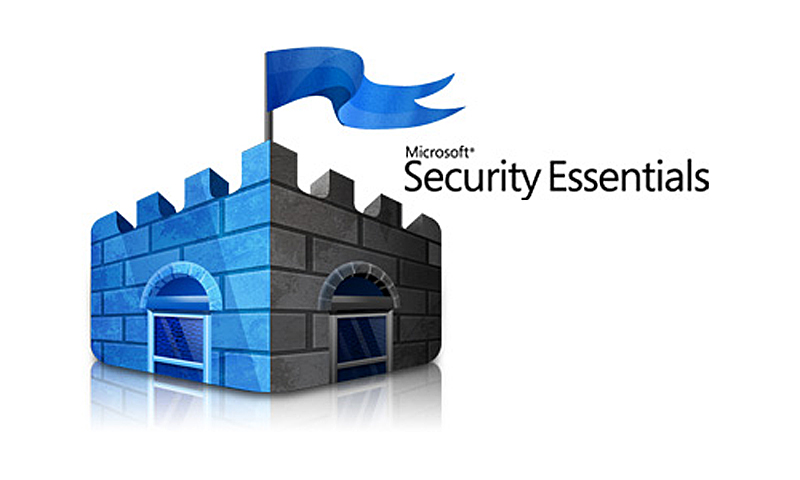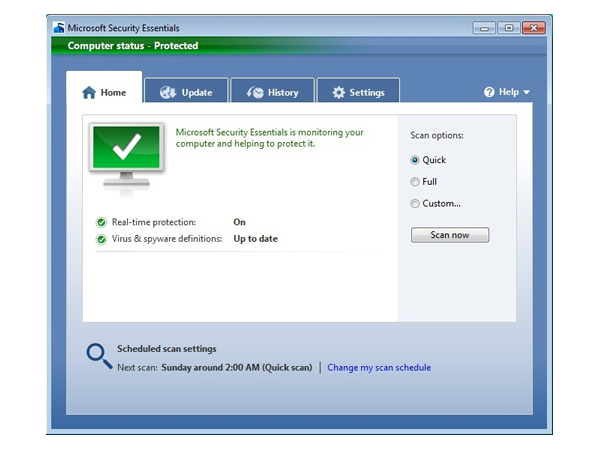Free Microsoft Antivirus Software Finally Does Good Job
Microsoft Security Essentials still isn't the best way to secure your computer, but it's come within spitting distance of the top spot.
Microsoft Security Essentials, the free Microsoft antivirus software for Windows Vista and Windows 7, has always been a firm "better than nothing" option. That may have finally changed, if the latest evaluation from AV-TEST is any indication.

The German lab's latest twice-yearly Windows 7 results are in, and while Microsoft Security Essentials (MSE) still isn't the best way to secure your computer, it's within spitting distance of the top spot. (Usual contenders such as Bitdefender, Kaspersky Lab, Norton and Trend Micro took top honors among the best antivirus software, but you probably could have guessed that.)
AV-TEST conducts regular evaluations of antivirus software on a variety of operating systems. Up until now, the company's results have been deservedly unkind to MSE (and to its Windows 8.1/10 sibling, Windows Defender), dinging it for poor antivirus protection, even though the free Microsoft program's usability and system impact are often pretty good.
In the latest round of tests, however, MSE scored a very respectable 16.5 out of a possible 18: five in Performance, 5.5 in Protection and a perfect 6 in Usability. The program blocked at least 99.3 percent of widespread threats, and an impressive 100 percent of zero-day vulnerabilities, in two rounds of evaluations conducted in January and February.
Still, if you're looking for the absolute best protection that money can buy, you'll have to go with Bitdefender Internet Security, Kaspersky Internet Security, Norton Security or Trend Micro Internet Security, all of which got perfect scores of 18. F-Secure Safe and Quick Heal Total Security were right behind them, with 17.5 each. All six programs earned AV-TEST's "Top Product" honors.
All Windows antivirus packages from those vendors should offer the same level of protection. Many of them also make software for Macs and Android devices; for more on those platforms, check out our lists of the best Mac antivirus software and the best Android antivirus apps.
At the other end of the spectrum, Microworld eScan Internet Security Suite, Intel McAfee Internet Security Suite and Comodo Internet Security Premium scored 15, 14.5 and 13 points respectively. Each one earned a good-enough-for-government-work 4 out of 6 in Security, but fell down on the Performance and Usability Sections.
Get instant access to breaking news, the hottest reviews, great deals and helpful tips.

Aside from Microsoft, all the other programs tested fell between 16.5 and 14.5: AhnLab V3 Internet Security, Avast Free Antivirus, AVG Internet Security, Avira Antivirus Pro, BullGuard Internet Security, ESET Internet Security, G Data InternetSecurity, K7 Computing Total Security and ThreatTrack VIPRE Internet Security Pro. If you have any of these programs, you probably don't need to worry much about your system's security.
In fact, even if you have the three lowest-ranking programs, you're probably still protected pretty well. Every program scored at least a 10 across the board, which earns it an AV-TEST Certification and (at least tentative) recommendation. However, MSE, which can be downloaded for Windows 7 and Windows Vista here, did better than each in the malware-protection sector.
Whichever program you choose, just be sure you protect your system somehow. No matter how careful you are online, it’s unlikely that you can avoid every single misleading link, phishing scheme, malicious popup and hidden malvertisement that comes your way, and an AV suite is much cheaper than losing all your files.

Marshall Honorof was a senior editor for Tom's Guide, overseeing the site's coverage of gaming hardware and software. He comes from a science writing background, having studied paleomammalogy, biological anthropology, and the history of science and technology. After hours, you can find him practicing taekwondo or doing deep dives on classic sci-fi.
 Club Benefits
Club Benefits





